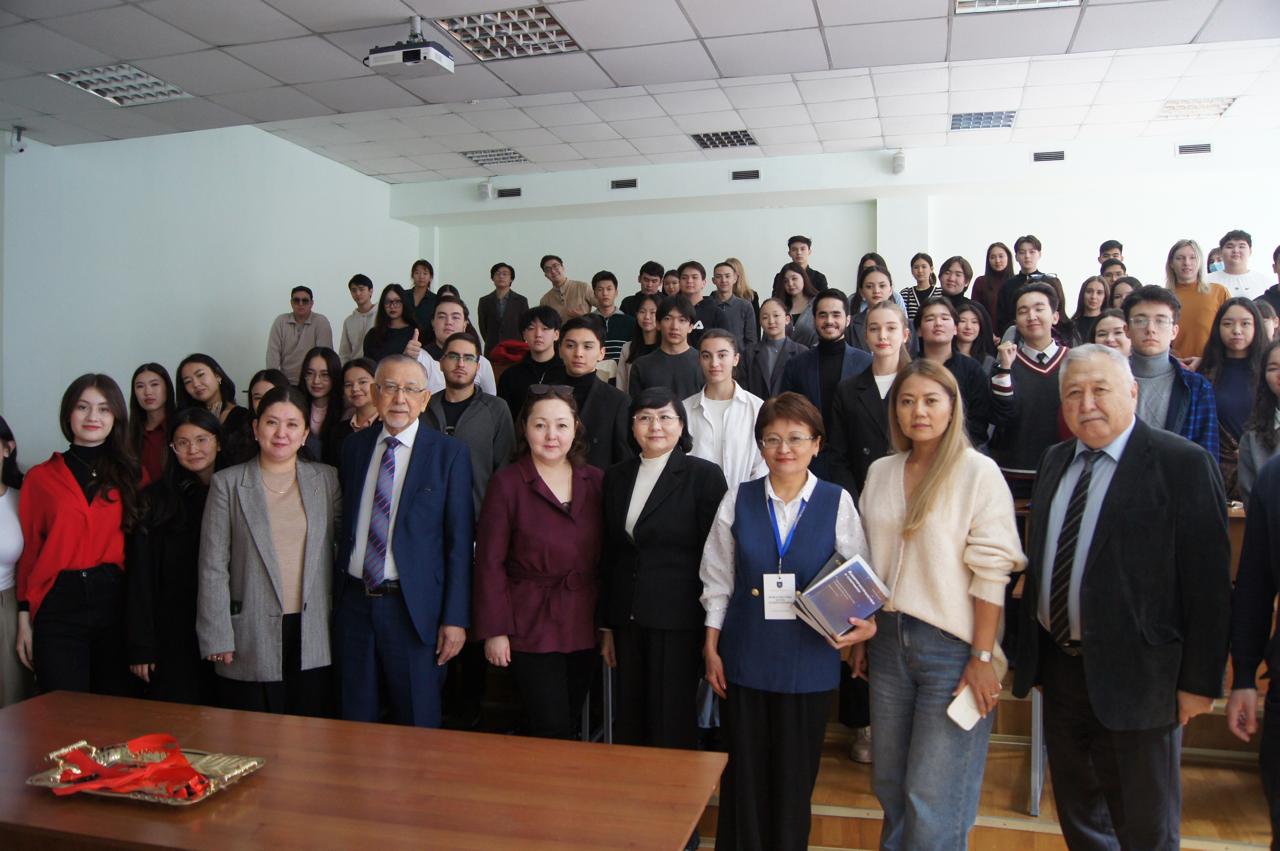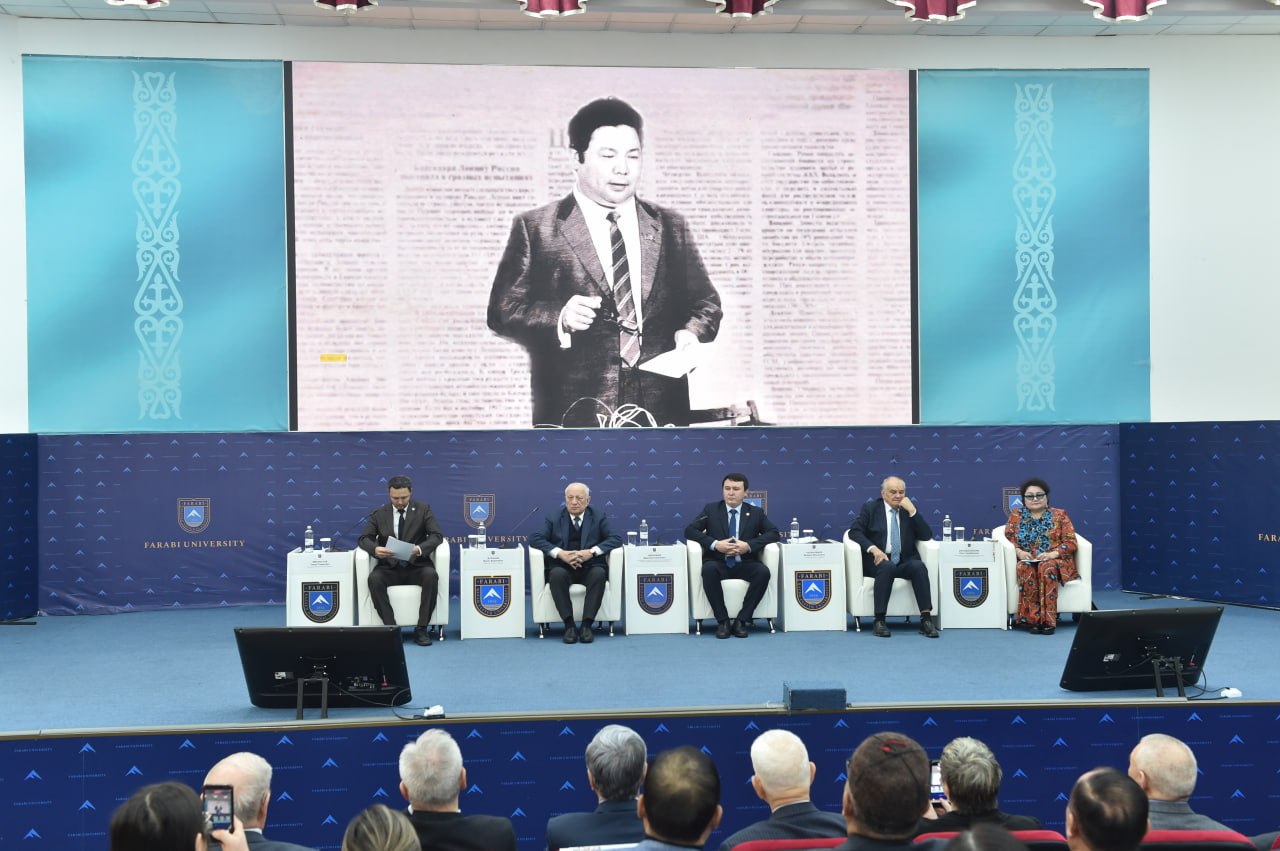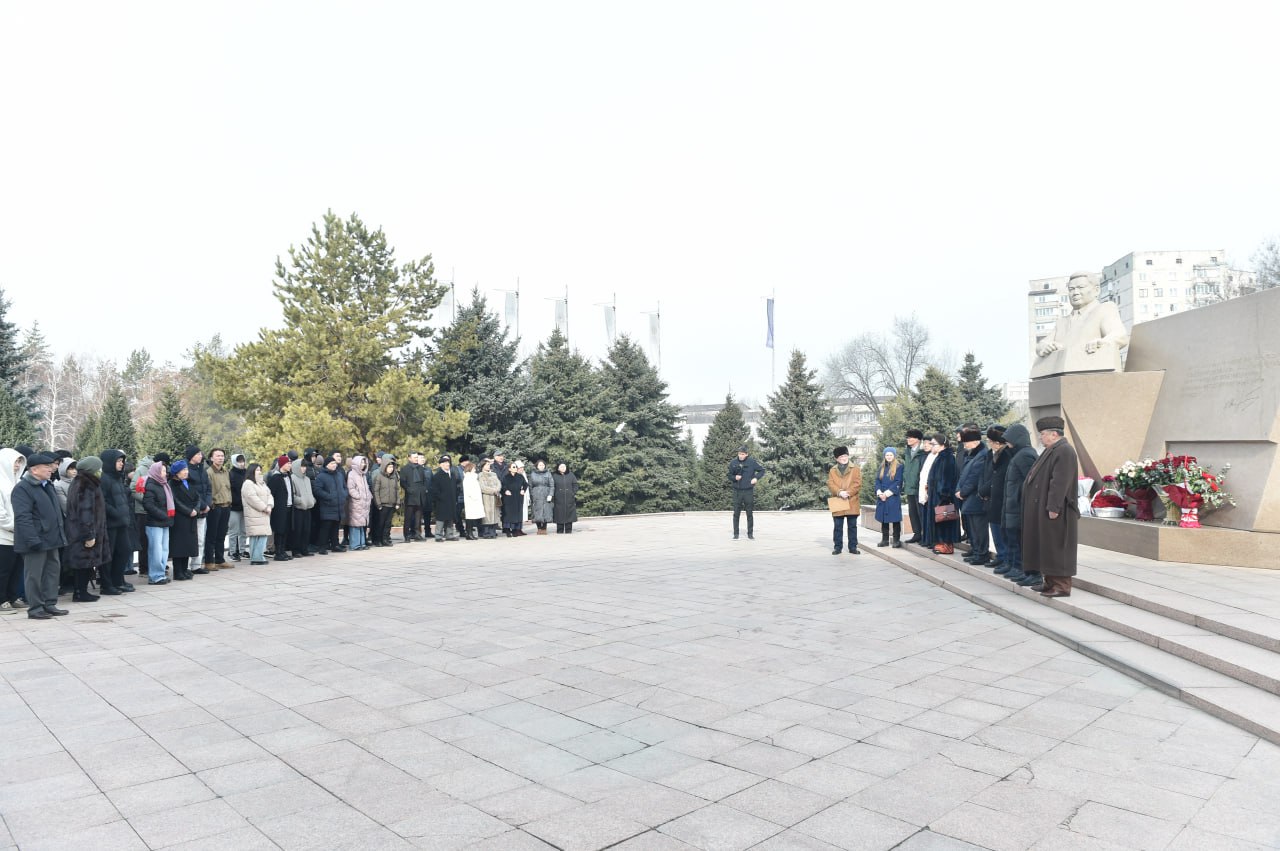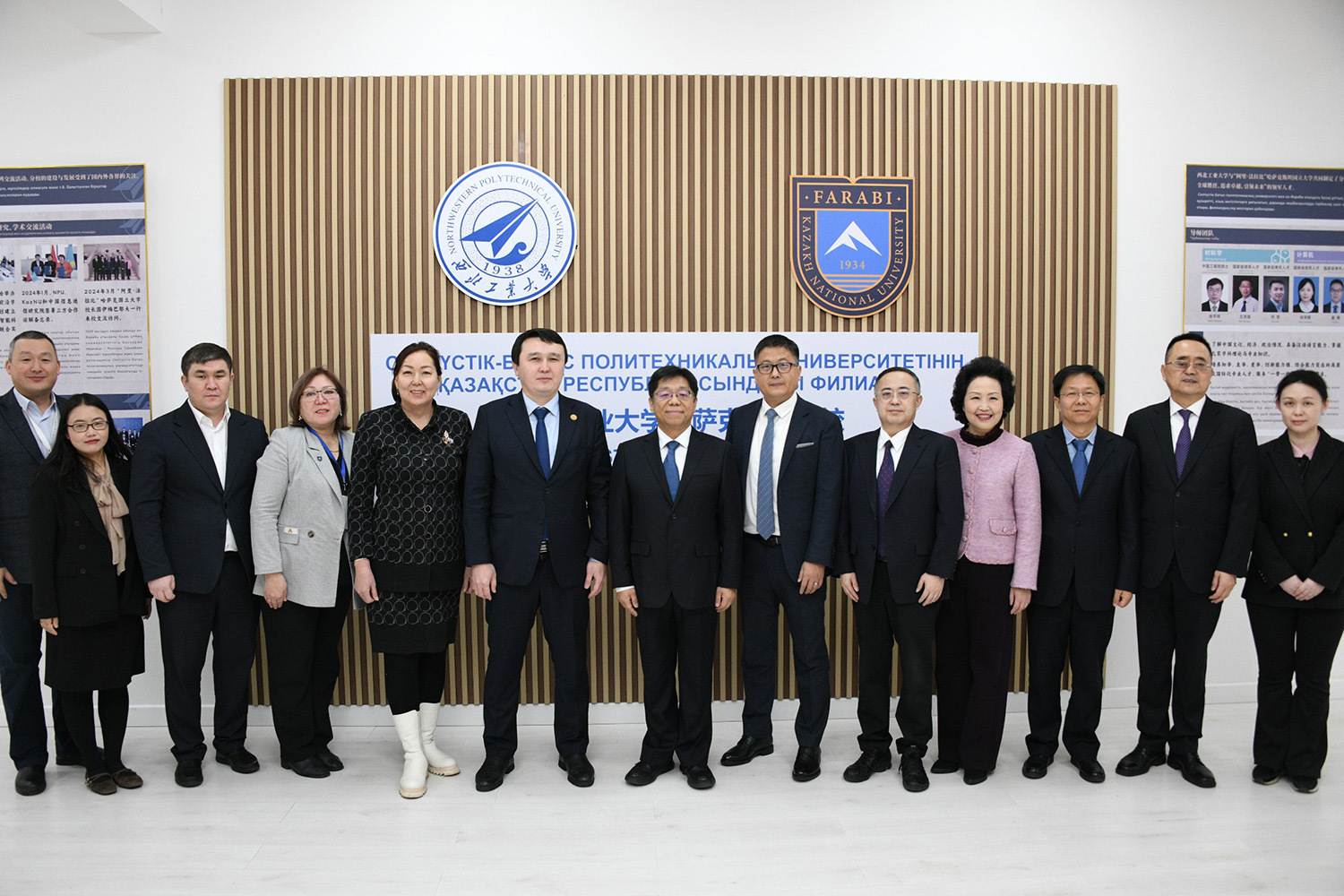UN SDG 16 "Problems of Legal Counteraction to Corruption"

On November 15, an important event within the framework of the SDG with the participation of the Dean of the Faculty, Heads of departments and their deputies was held at the Faculty of International Relations on the topic «Problems of Legal Counteraction to Corruption» with students of four specialties of the 1st year on the occasion of the International Anti-Corruption Day on December 9th, 2024.
The speakers were leading teachers of the Department of International Law professor Shakirov K.N. and associate professor Samaldykov M.K.
Professor Shakirov K.N. explained the UN SDG 16 in terms of improving justice. At the same time, he focused on the problems of lawmaking, including legal (anti-corruption) expertise, due to the imperfection of which anti-corruption legislation is violated. To raise awareness of these important issues among those present, the speaker asked the audience questions during his speech and, thus, aroused keen interest among the students. In his speech, he emphasized that the lack of a special methodology for conducting anti-corruption expertise and the involvement of lawyers for its production who are not prepared to conduct it are the reason for the preservation of corruption factors in regulatory legal acts. Associate Professor Samaldykov M.K. in his speech revealed the history of the holiday, which originates from the signing of the UN Convention against Corruption. This international treaty, consisting of eight chapters, obliges participating countries to pursue an anti-corruption policy, approve relevant laws and take other measures to combat this phenomenon. The Republic of Kazakhstan, having ratified this convention in 2008, thereby assumed obligations to combat corruption - an economic, political and social phenomenon that affects all countries to one degree or another. In February 2022, the Decree of the Head of State approved the Concept of the Anti-Corruption Policy of the Republic of Kazakhstan for 2022 - 2026 with a specific action plan for its implementation. This document is aimed at the systematic elimination of the prerequisites for corruption, ensuring the inevitability of responsibility for it, and a radical change in public consciousness. The cornerstone of the entire anti-corruption system is the upcoming introduction of liability for officials for unjust enrichment. That is, fiscal and career sanctions will occur in the event of a discrepancy between an official's expenses and his income based on the results of a comparison of declarations. The term for introducing the innovation is 2027.
The speaker drew the attention of those present to the fact that there is no need for the general declaration of the country's population planned for 2025, since the UN Convention speaks of the declaration of exclusively public officials as an effective measure to combat corruption. He also informed that Kazakhstanis have created a petition to cancel the third and fourth stages of the general declaration, which the author of the petition reported on the state website petition.kz. This information was presented to KazTAG on November 14th. Thus, the country's population has a mechanism that allows them to correct the situation with the universal declaration of the country's population due to its inappropriateness.
In terms of implementing the UN SDG 16.5 to significantly reduce the scale of corruption and bribery in all their forms, the speaker highlighted measures aimed at returning assets illegally withdrawn from the country. They were asked to withdraw Kazakhstan's reservation, which takes place in the country's Law on ratification of the UN Convention against Corruption, as preventing an appeal to the arbitration court and the International Court of Justice for their return from foreign countries.
The event was accompanied by a thematic exhibition of books, prepared on the initiative of the librarian Kozhahmetova Assel from the reading room of the faculty. The authors of these books were both speakers, which made it possible to visually familiarize students with their scientific works. Thus, this event contributed to the development of legal awareness in students and the ability to draw conclusions based on the data obtained. It is important to note that the event was held with the active participation of students, who demonstrated knowledge of various provisions of both the SDGs and the essential foundations of corruption offenses.



